Ceer
Sublime Text plugin providing code navigation and true intelligence for C and C++.
Details
Installs
- Total 370
- Win 3
- Mac 362
- Linux 5
| Feb 28 | Feb 27 | Feb 26 | Feb 25 | Feb 24 | Feb 23 | Feb 22 | Feb 21 | Feb 20 | Feb 19 | Feb 18 | Feb 17 | Feb 16 | Feb 15 | Feb 14 | Feb 13 | Feb 12 | Feb 11 | Feb 10 | Feb 9 | Feb 8 | Feb 7 | Feb 6 | Feb 5 | Feb 4 | Feb 3 | Feb 2 | Feb 1 | Jan 31 | Jan 30 | Jan 29 | Jan 28 | Jan 27 | Jan 26 | Jan 25 | Jan 24 | Jan 23 | Jan 22 | Jan 21 | Jan 20 | Jan 19 | Jan 18 | Jan 17 | Jan 16 | Jan 15 | |
|---|---|---|---|---|---|---|---|---|---|---|---|---|---|---|---|---|---|---|---|---|---|---|---|---|---|---|---|---|---|---|---|---|---|---|---|---|---|---|---|---|---|---|---|---|---|
| Windows | 0 | 0 | 0 | 0 | 0 | 0 | 0 | 0 | 0 | 0 | 0 | 0 | 0 | 0 | 0 | 0 | 0 | 0 | 0 | 0 | 0 | 0 | 0 | 0 | 0 | 0 | 0 | 0 | 0 | 0 | 0 | 0 | 0 | 0 | 0 | 0 | 0 | 0 | 0 | 0 | 0 | 0 | 0 | 0 | 0 |
| Mac | 0 | 0 | 0 | 0 | 0 | 0 | 0 | 0 | 0 | 0 | 0 | 0 | 0 | 0 | 0 | 0 | 0 | 0 | 0 | 0 | 0 | 0 | 0 | 0 | 0 | 0 | 0 | 0 | 0 | 0 | 0 | 0 | 0 | 0 | 0 | 0 | 0 | 0 | 0 | 0 | 0 | 0 | 0 | 0 | 0 |
| Linux | 0 | 0 | 0 | 0 | 0 | 0 | 0 | 0 | 0 | 0 | 0 | 0 | 0 | 0 | 0 | 0 | 0 | 0 | 0 | 0 | 0 | 0 | 0 | 0 | 0 | 0 | 0 | 0 | 0 | 0 | 0 | 0 | 0 | 0 | 0 | 0 | 0 | 0 | 0 | 0 | 0 | 0 | 0 | 0 | 0 |
Readme
- Source
- raw.githubusercontent.com
Ceer
Ceer is a C and C++ plugin for Sublime Text that provides code intelligence across source files by continuously parsing and indexing a project. Because Ceer is actually starting to compiling the code, but stopping before code generation, it reflects the true state and structure of the program.
Ceer is in an early prototype phase, and we are working hard to improve stability, scalability, and portability. Currently, Ceer is only available on OSX, support for other major platforms is in the works. I haven't developed a good framework for testing yet, so any feedback is greatly appreciated!
Table of Contents
Features
Open Definition
Right clicking any reference to a method, field, class, etc. and selecting the Open Definition command will jump to the definition of that reference, even if it is defined in another source file. Note that in C or C++ a definition is not the same as a declaration. A declaration must be present in each file where there is a reference, while there must only be a single definition across all source files.
Example
The main.cpp file contains a call to Foo's method some_method, which is declared in main.cpp by including Foo.h, and defined in Foo.cpp.
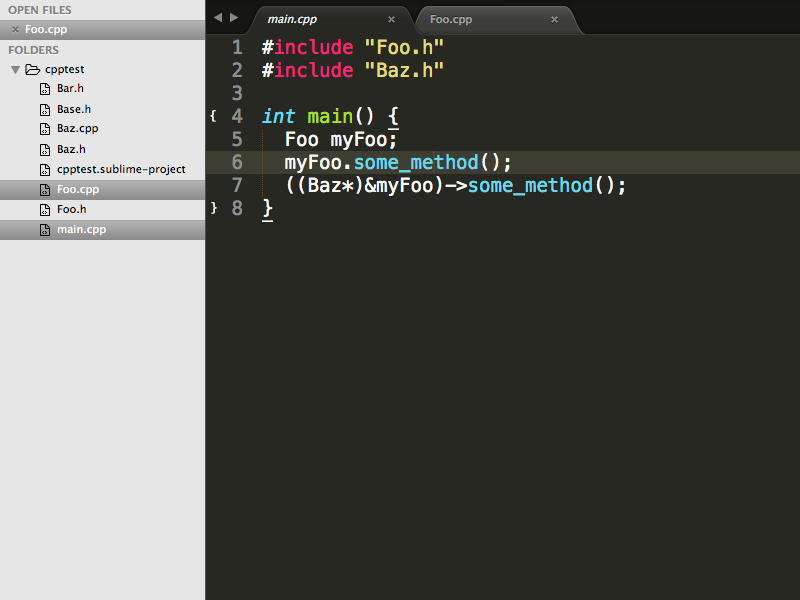
Right click with the cursor anywhere in on some_method to call Open Definition.
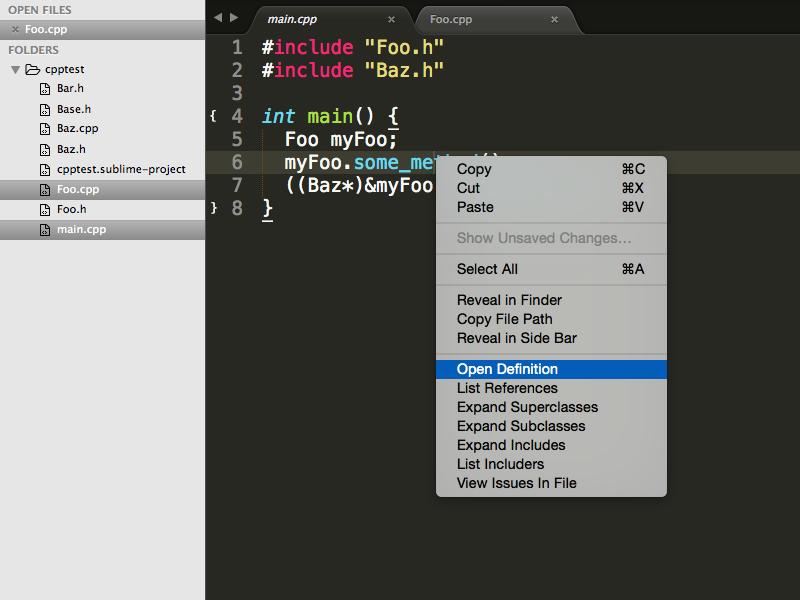
Open Definition will open Foo.cpp and highlight the some_method definition.
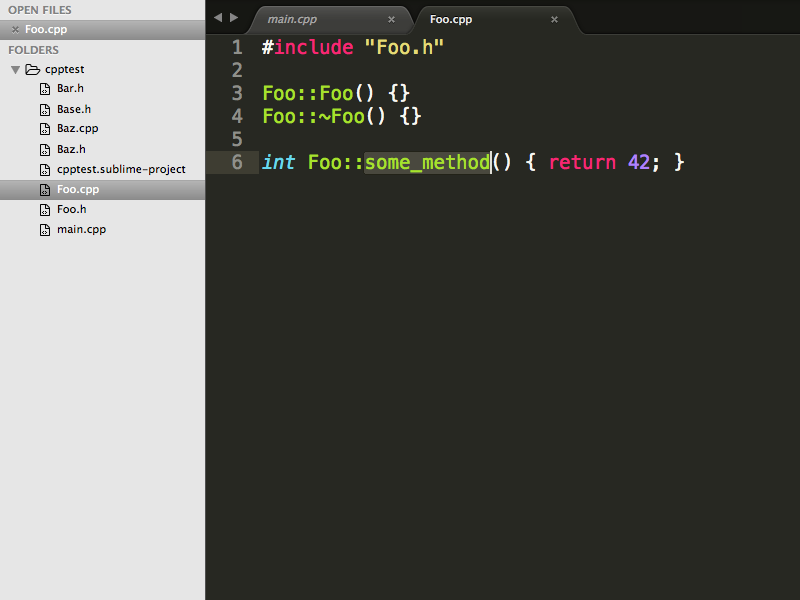
List References
The List References command can be called on any definition or reference, and will list all references in a menu. Highlighting a reference will navigate to its location in the project.
Example
Call List References on Baz's method some_method. Note that calling List References on any reference to some_method would be the same.
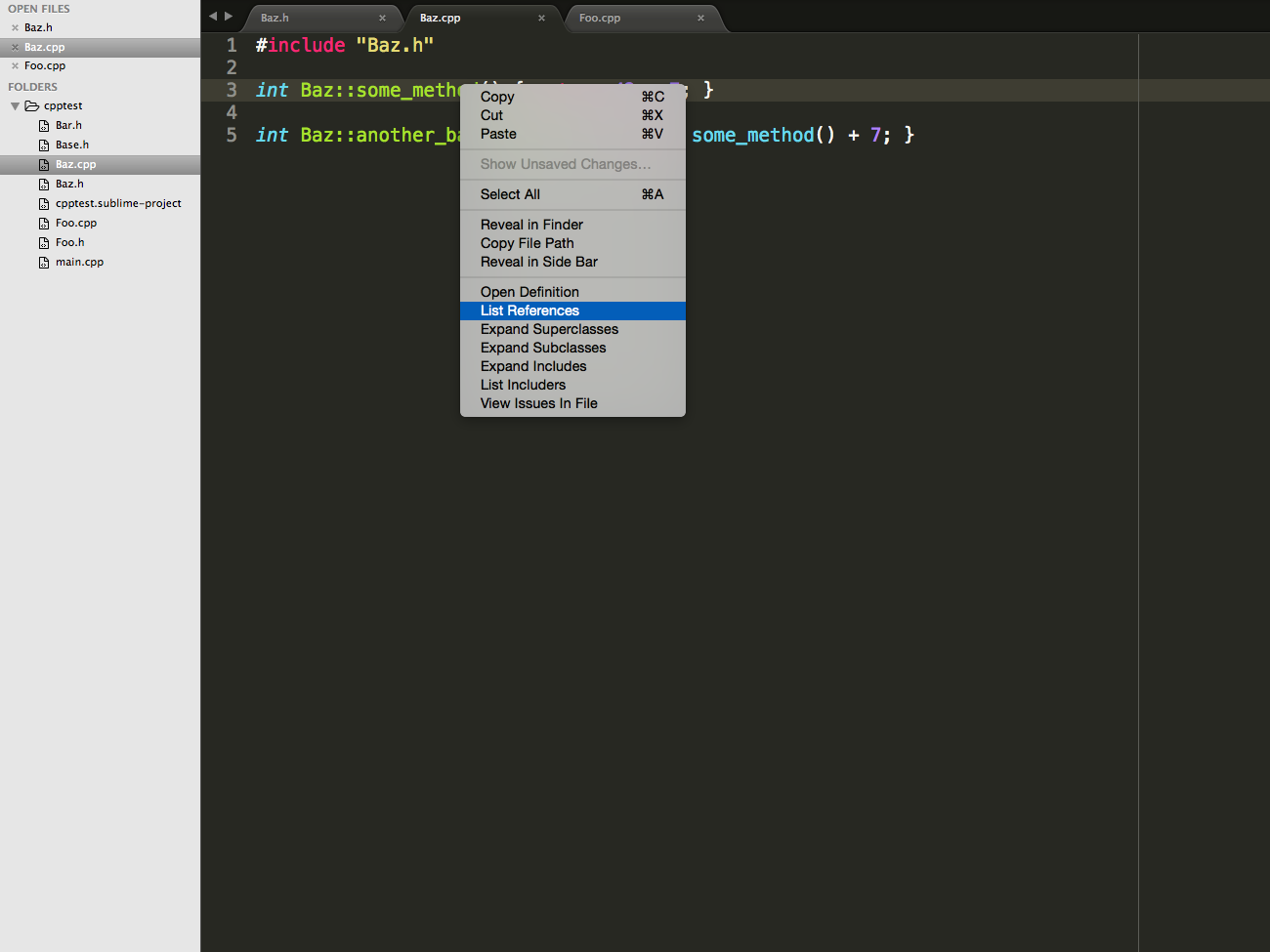
The first reference found is in main.cpp. Here we can see that Ceer is able to infer the compile-time type of the expression ((Baz*)&myFoo). In fact, it should be able to perform type inference identical to a compiler for any valid expression.
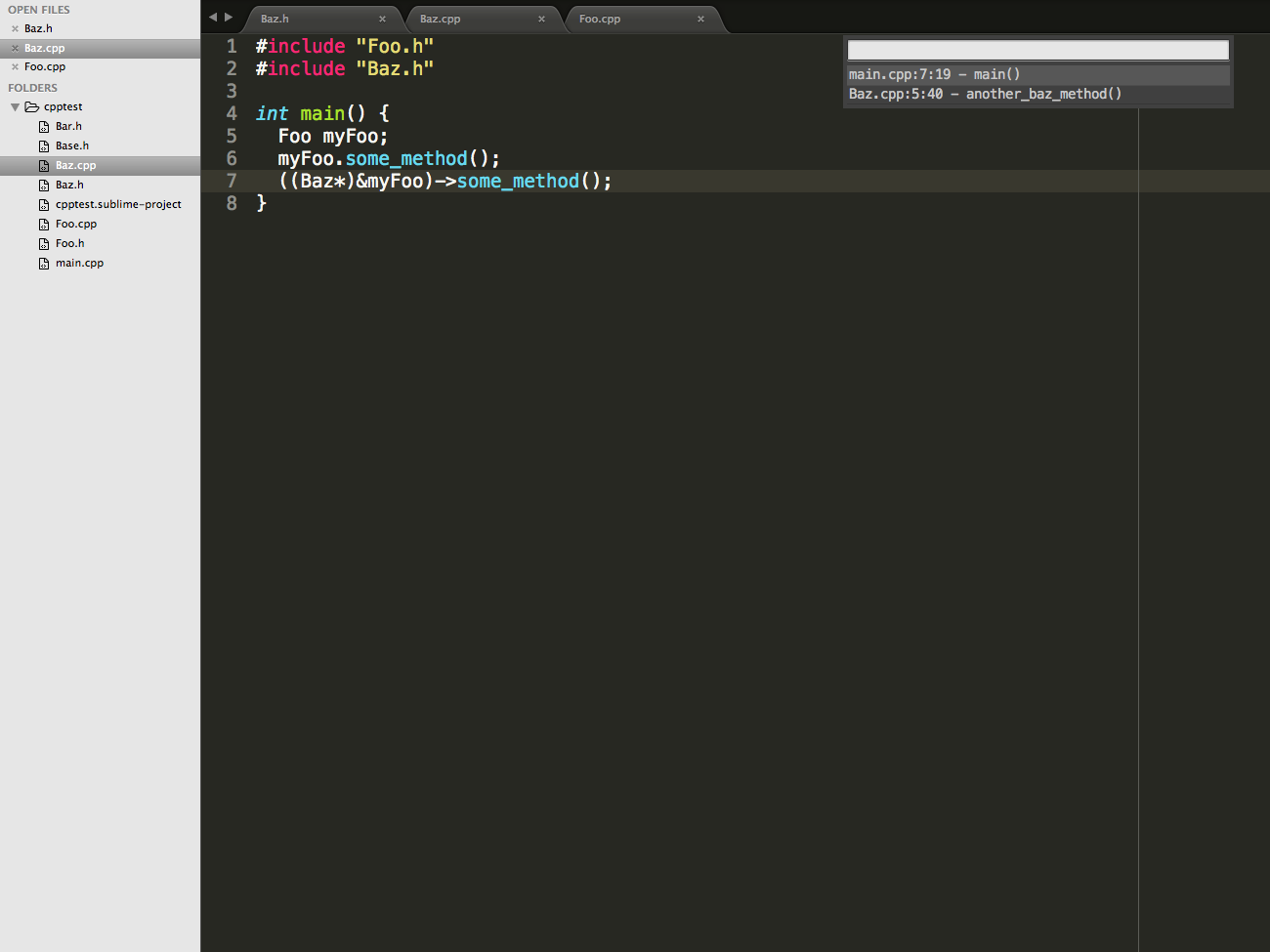
The second reference found is in Baz's method another_baz_method.
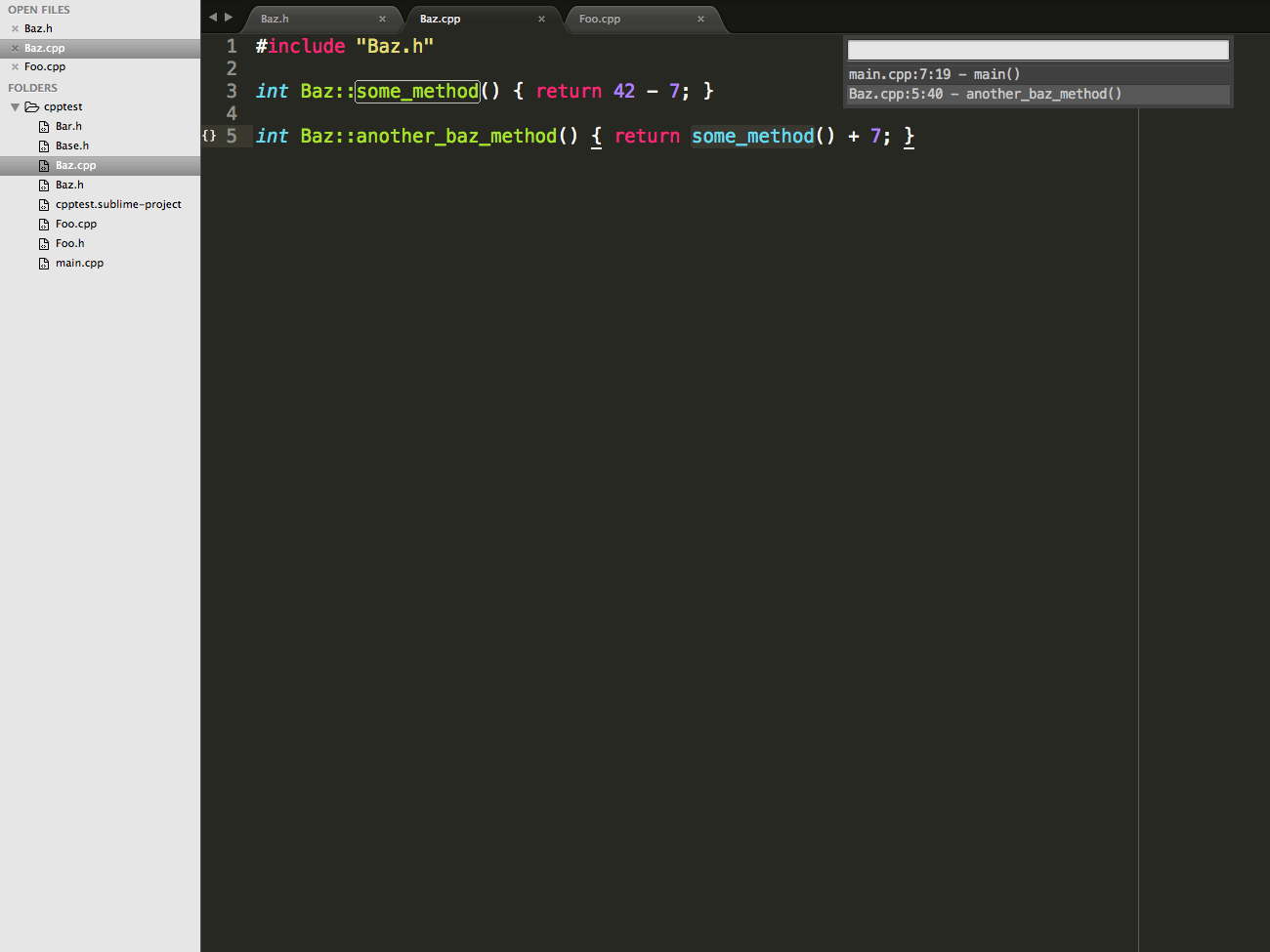
Expand Superclasses
The Expand Superclasses command can be called on any definition or reference for a C++ class, and displays inheritance hierarchy of the class in a menu.
Example
Call Expand Superclasses on Foo. As with List References, we could also call Expand Superclasses on a reference to Foo.

Foo inherits from Base, which doesn't inherit from any other class.
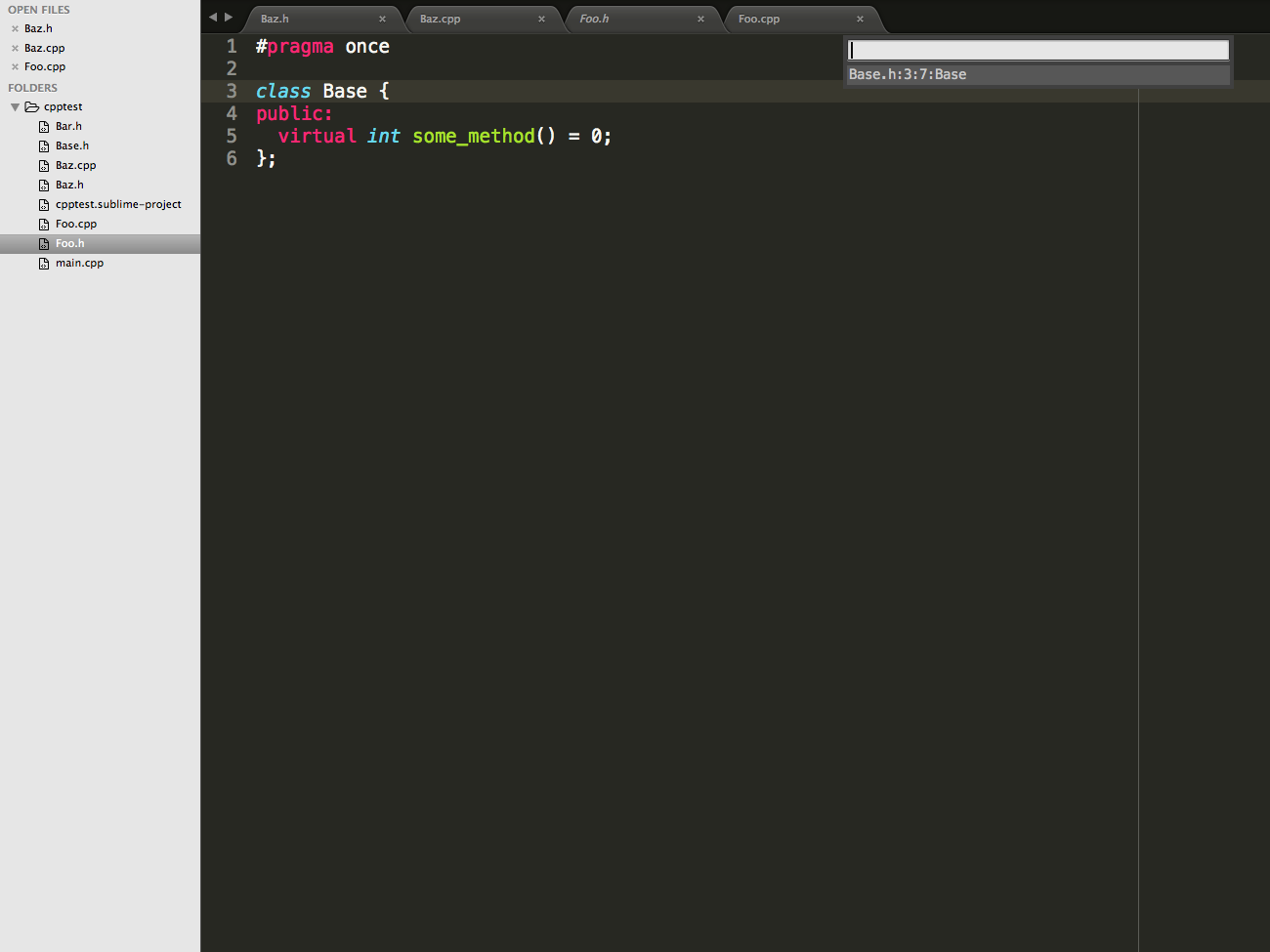
Baz has a more interesting inheritance structure.
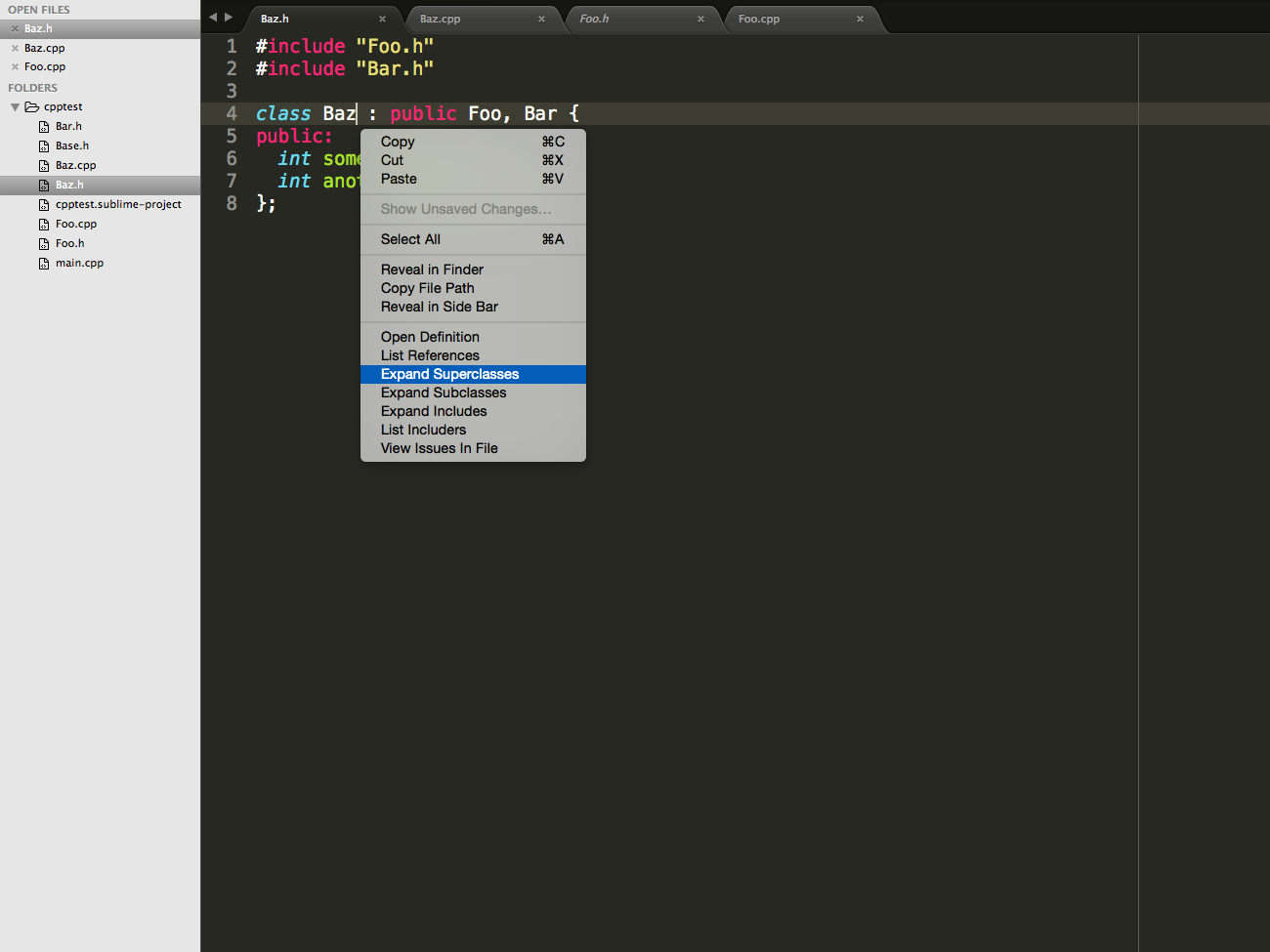
Baz inherits directly from both Foo and Bar, both of which inherit from Base. Note that in the menu, the superclasses are displayed in breath first search order, and are indented by their level in the inheritance hierarchy.
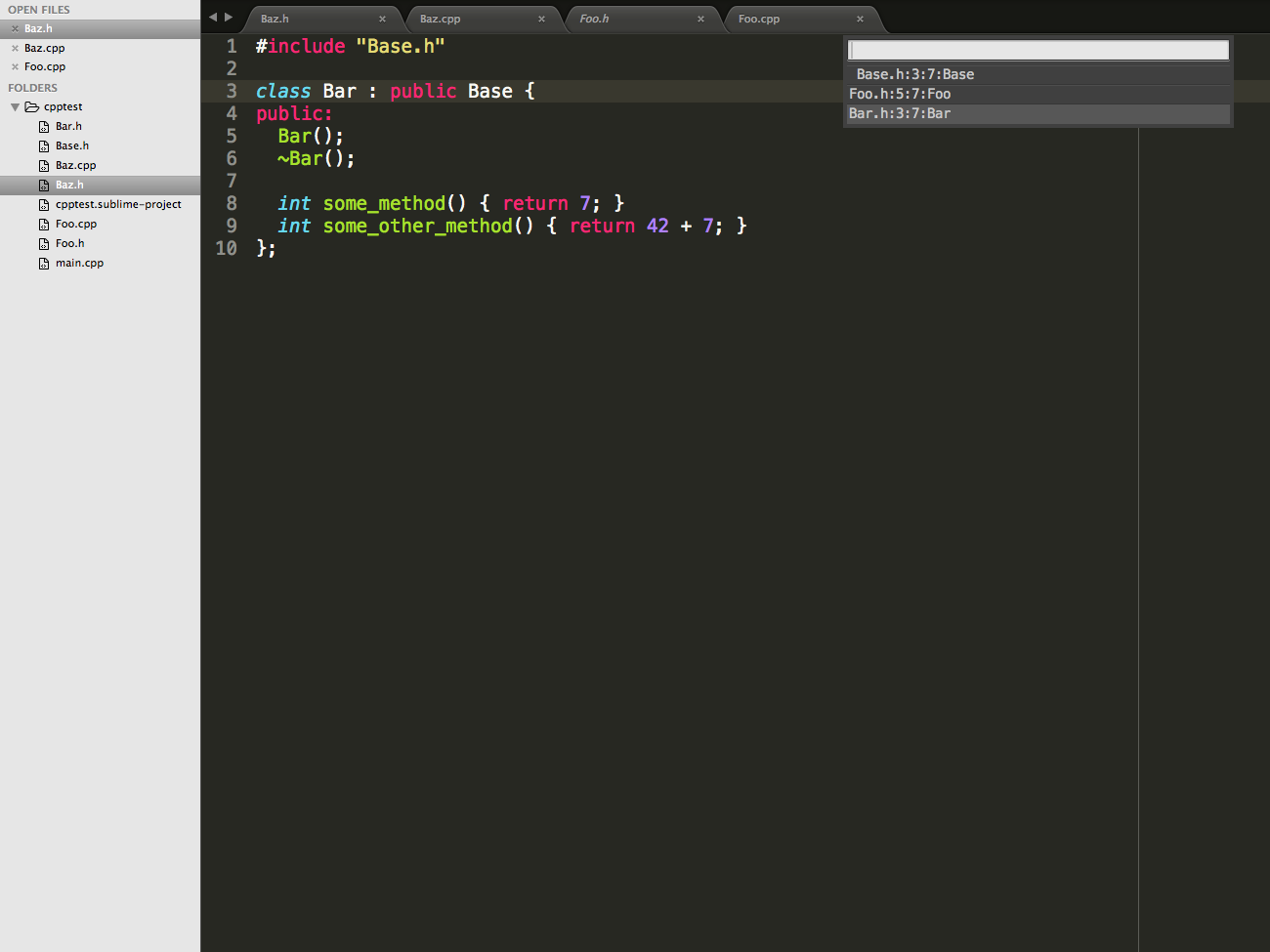
Expand Subclasses
Naturally, the Expand Subclasses command behaves the same as the Expand Superclasses command, but displays classes that inherit from the selected class.
Example
Call Expand Subclasses on Base.
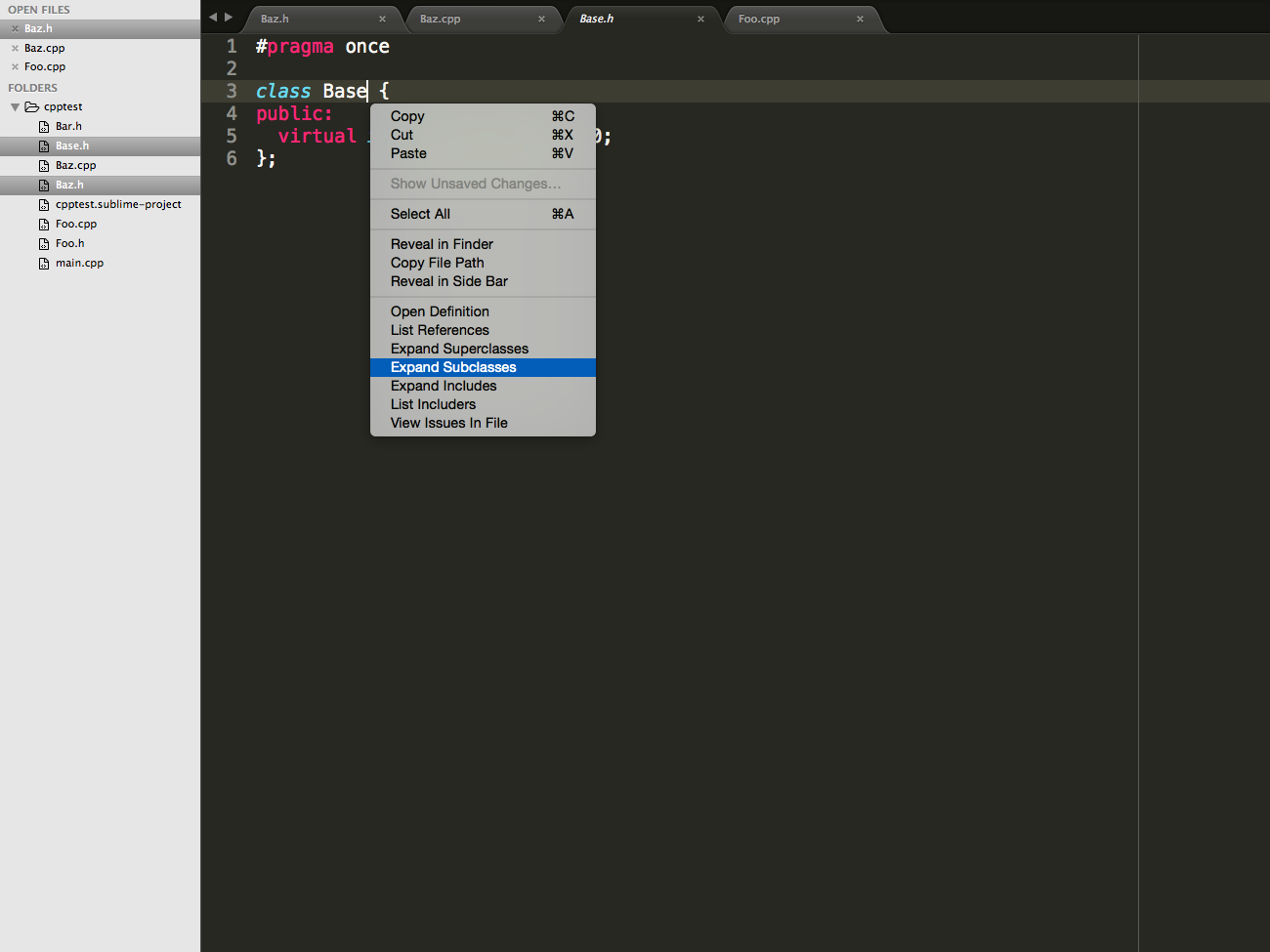
This diagram looks similar to when we called Expand Superclasses on Baz, but is reversed, because we are looking from the top of the inheritance hierarchy down, instead of from the bottom up.

Expand Includes
Right clicking anywhere in a file and selecting the Expand Includes command will show all the files that file is including, whether directly or indirectly. The includes are ordered by depth first search, and indented based on how indirect the inclusion is.
Example
Call Expand Include on Baz.h.
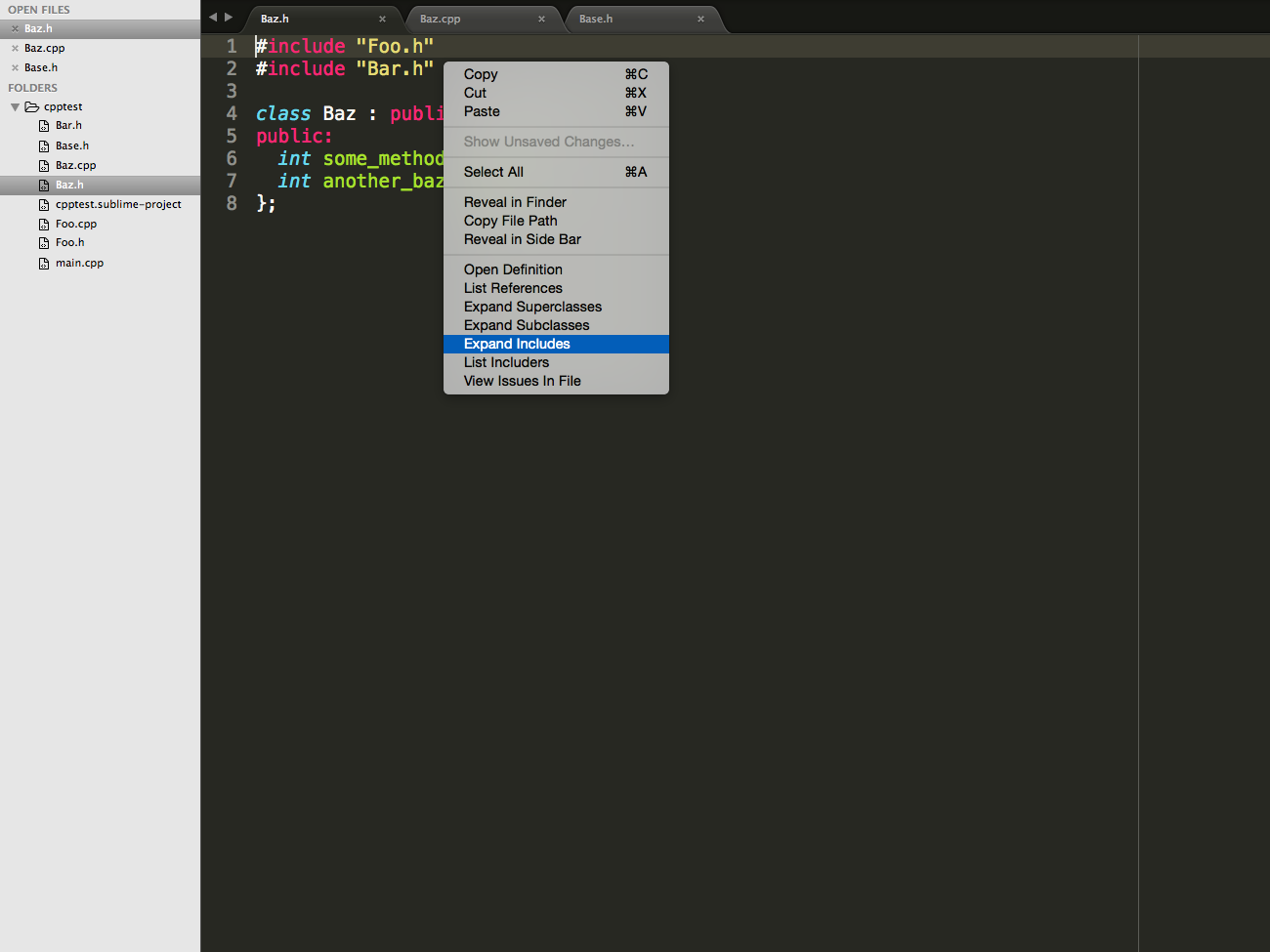
Baz.h includes Foo.h and Bar.h, which both include Base.h. Note that Base.h is indented because it is not directly included in Baz.h.
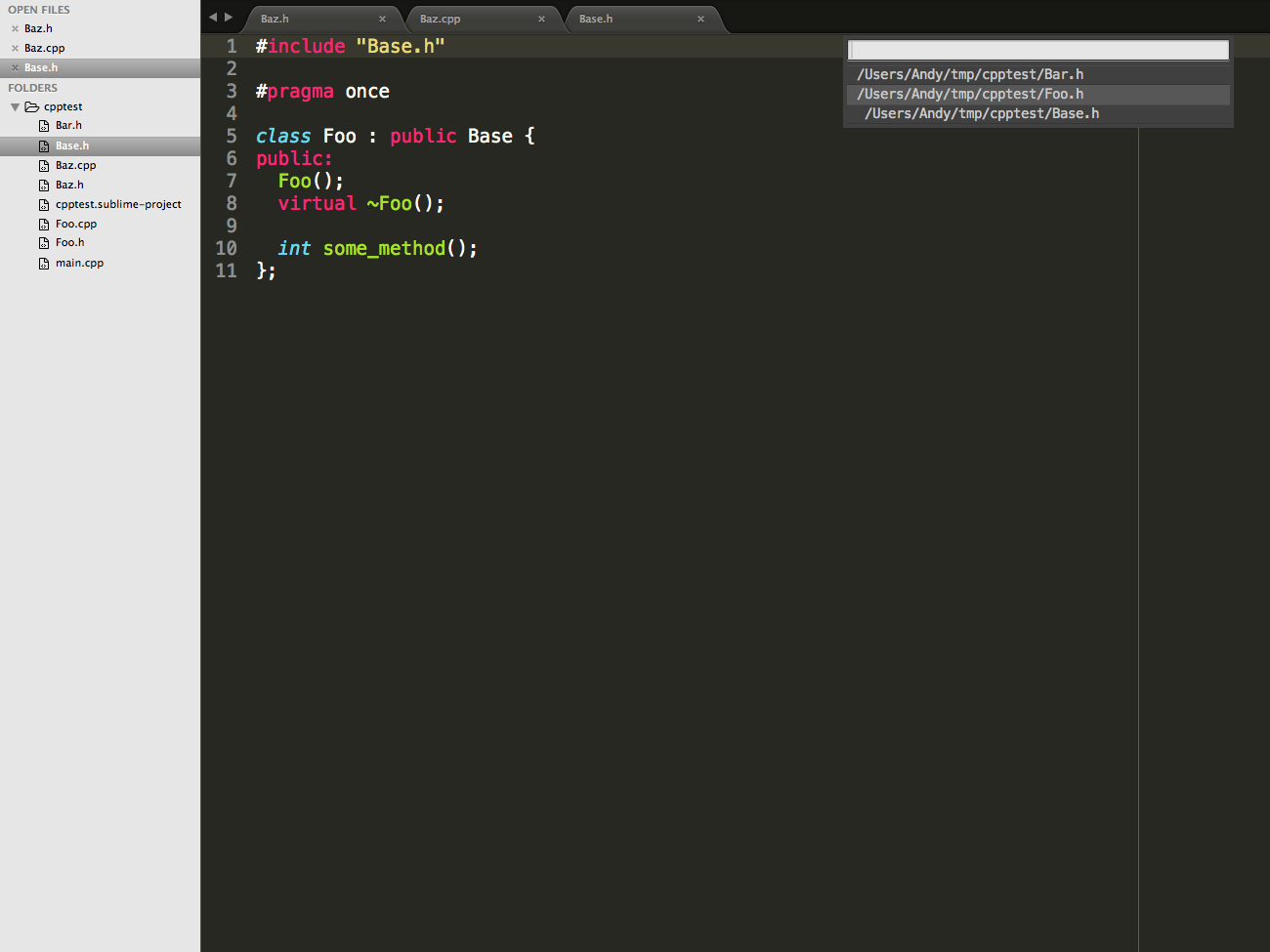
List Includers
The List Includers displays a menu of all the files that are including the file the command is called on. Similarly to the Expand Includes command, the files are ordered by depth first search, and indented based on indirectness.
Example
Call List Includers on Foo.h.
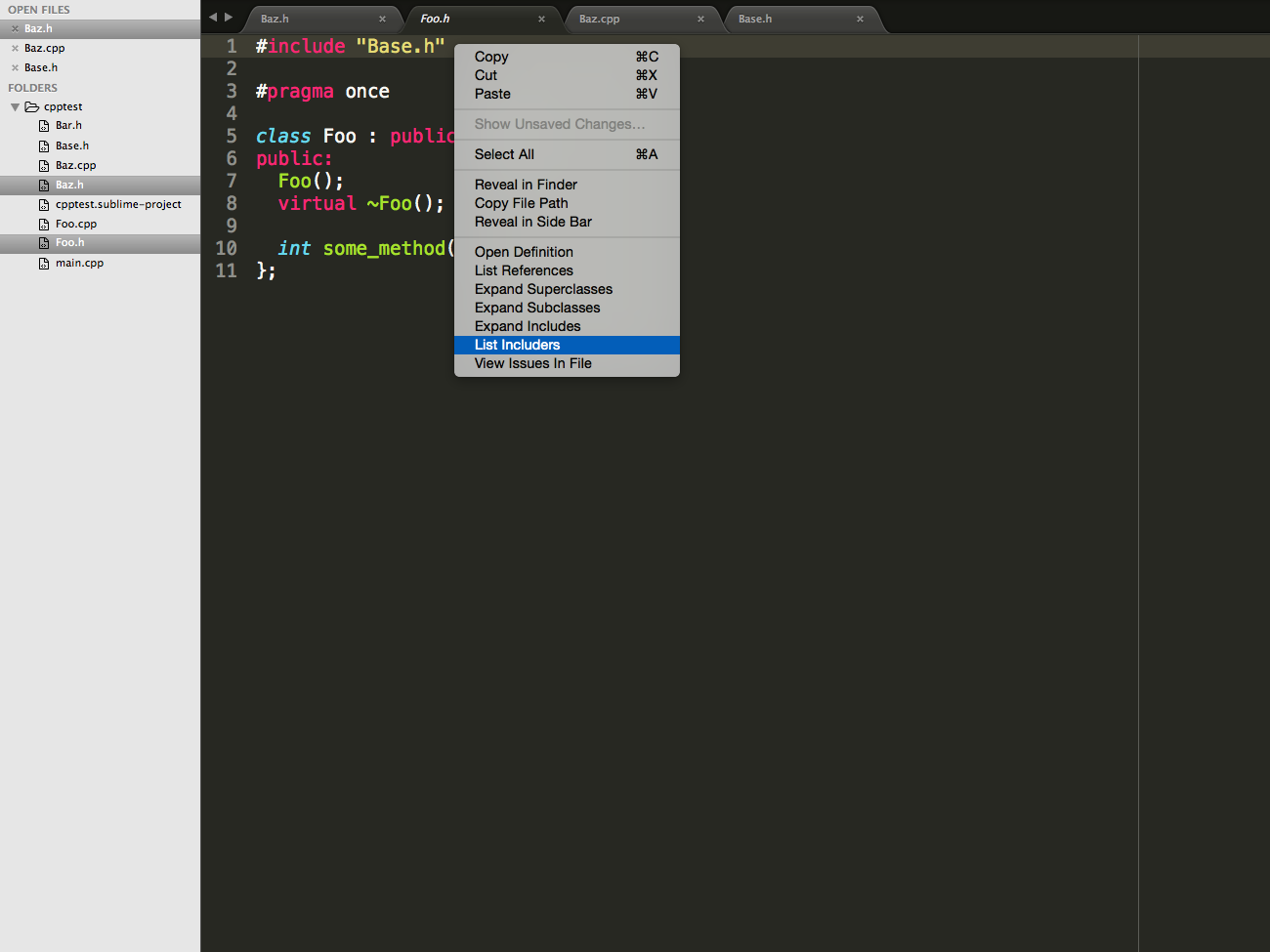
Baz.h, Foo.cpp, and main.cpp all directly include Foo.h. Baz.cpp indirectly includes Foo.h, because it includes Baz.h.
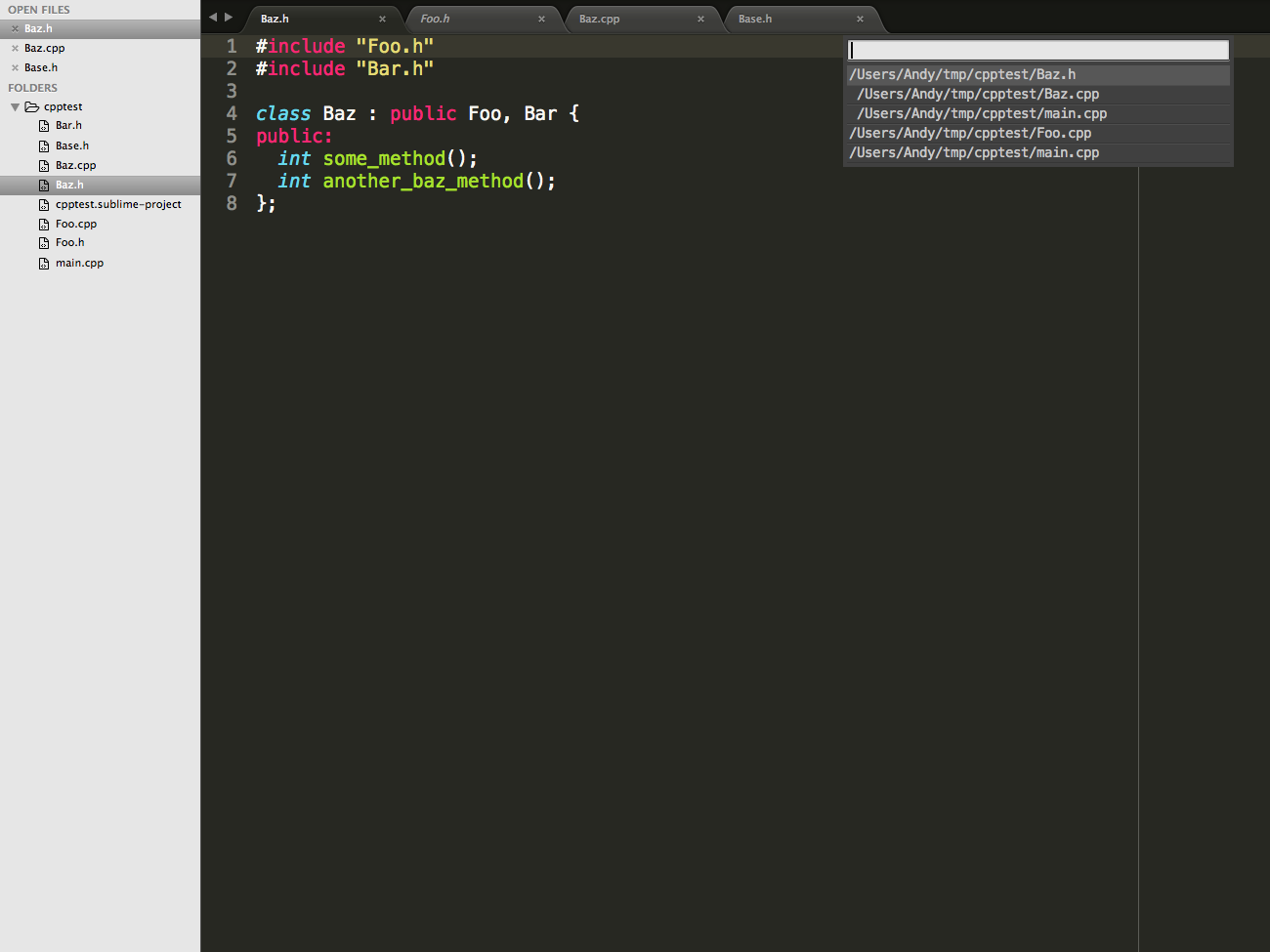
Diagnostics
If the enable_diagnostics option is set to true in the .sublime-project file, Ceer will display the same errors and warnings as the compiler. Moving the cursor to anywhere in the diagnostic will display a summary in the Sublime status bar at the bottom of the window. A list of all commands in the project or a single file can be viewed in a menu using the View Issues in Project or View Issues in File commands, respectively.
Example
a_private_field is declared to be private in Foo.h. Attempting to access it in Baz results in the error 'a_private_field' is a private member of 'Foo'.
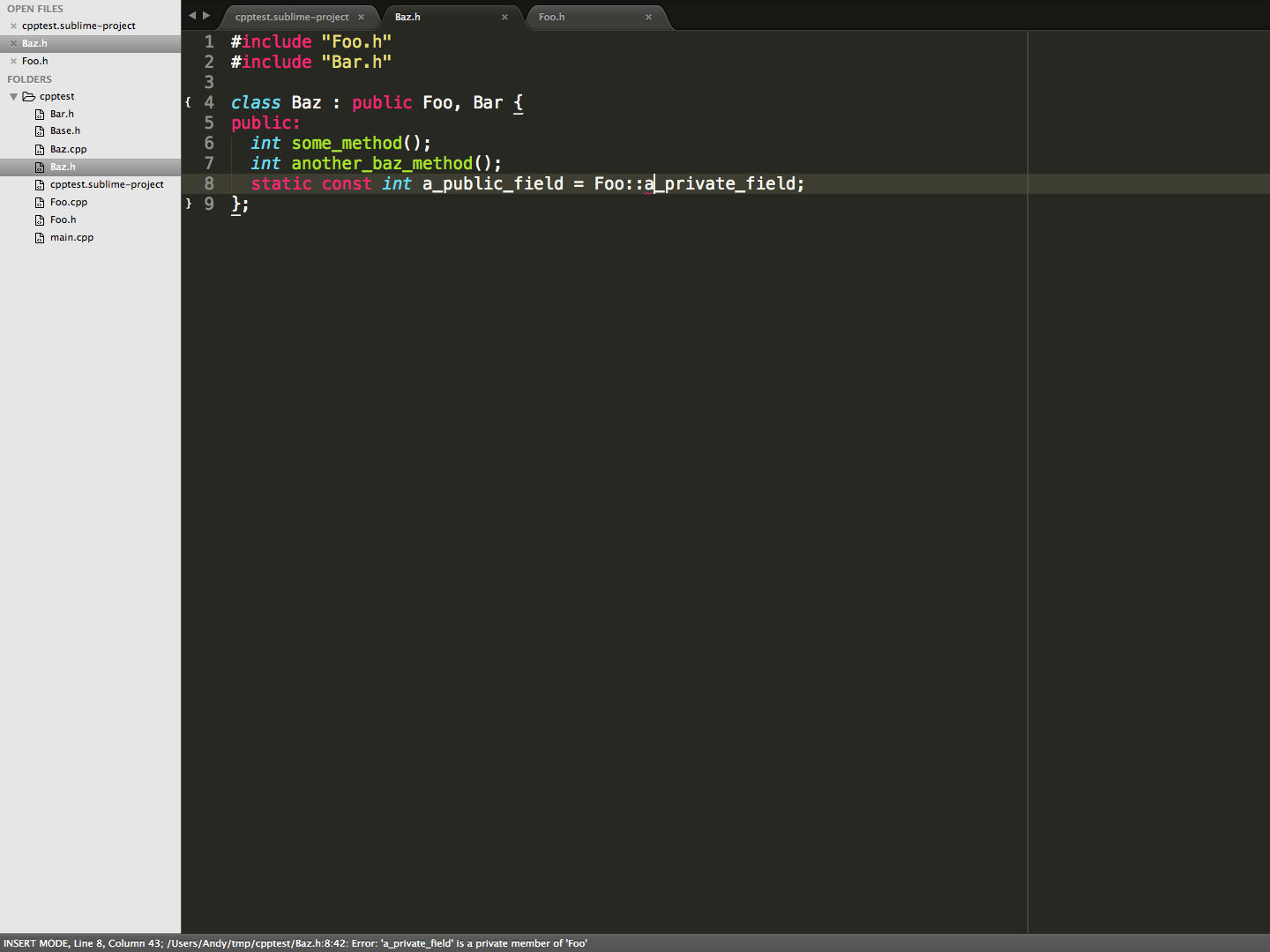
Calling the View Issues in Project command or calling the View Issues in File command on Baz.h displays the error in a menu.
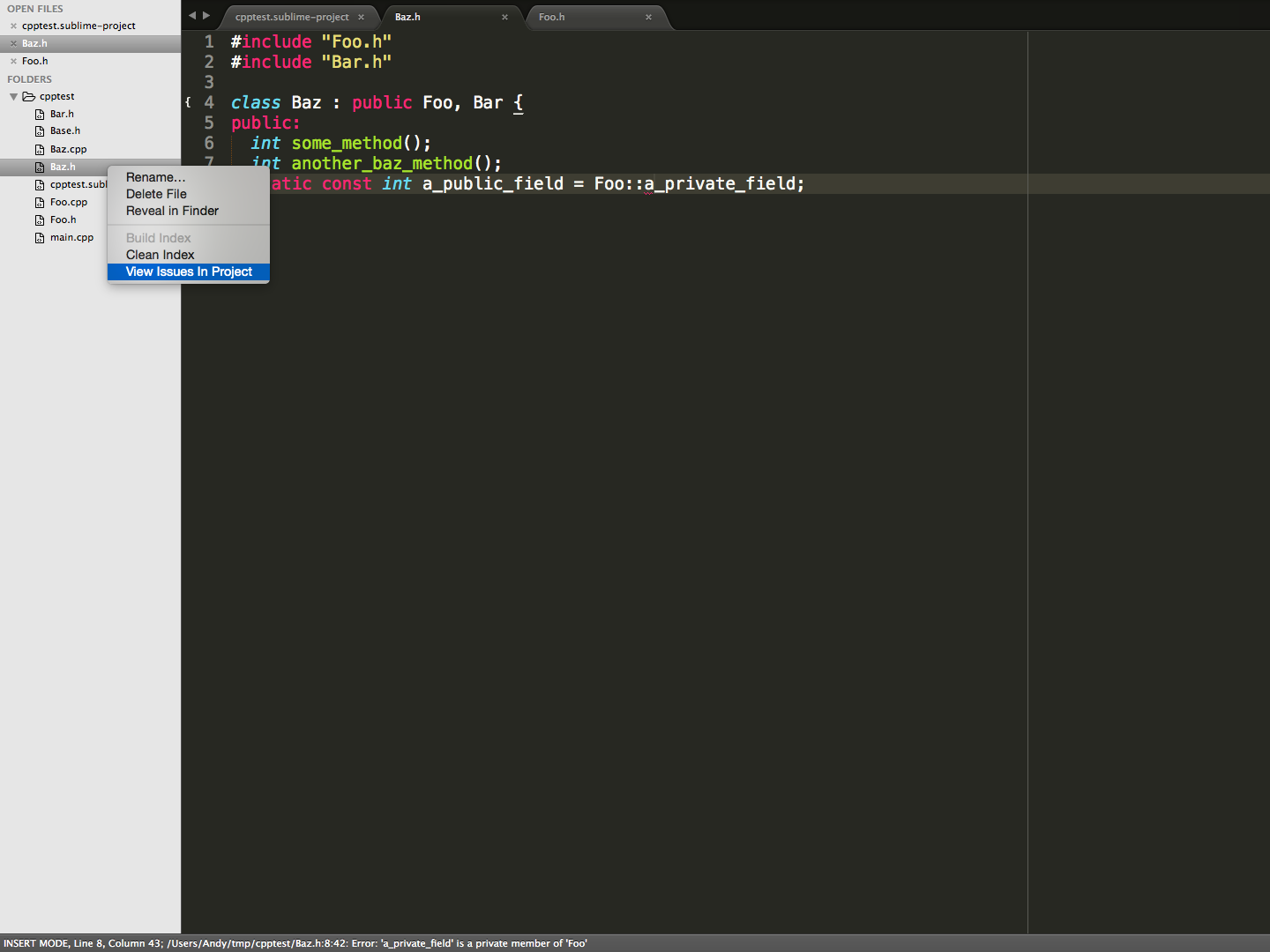
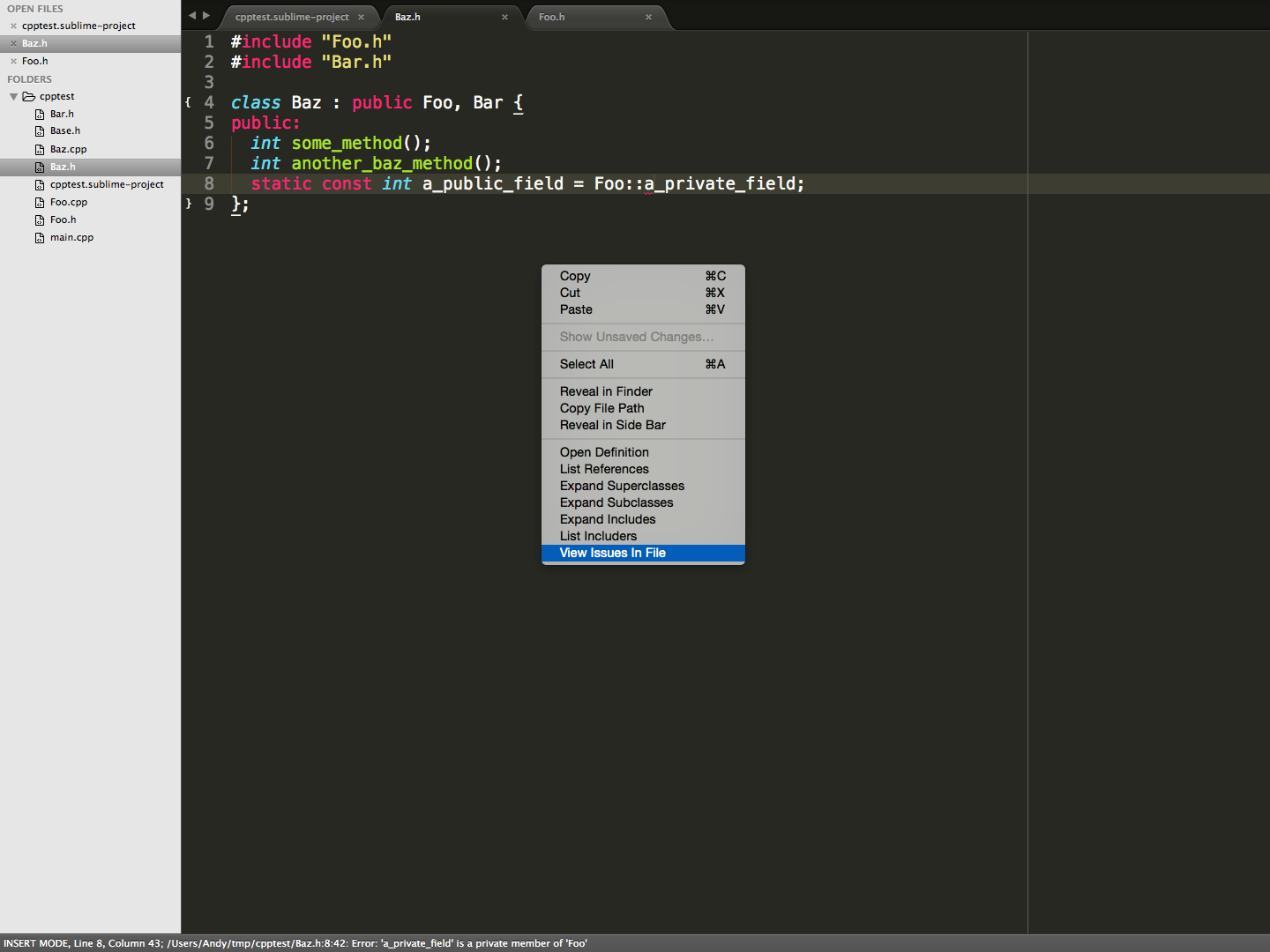
Selecting an error in the menu will jump to the error.

Setup
Currently Ceer is in a prototype phase, and is only available for OSX. Support for other platforms is planned.
Installation
Package Control
Ceer is available in Package Control.
Cloning
Currently, the only way to install is by directly cloning the Ceer repo into ~/Library/Application Support/Sublime Text 3/Packages:
$ cd ~/Library/Application Support/Sublime Text 3/Packages
$ git clone git@github.com:andylamb/Ceer.git
or
$ cd ~/Library/Application Support/Sublime Text 3/Packages
$ git clone https://github.com/andylamb/Ceer.git
Quickstart
- Create a
.sublime-projectfile, using 'Project > Save Project As…' - Right click anywhere in the Side Bar and select Build Index.

Configure
Ceer requires a .sublime-project file in order to know which files to parse and index. To create a .sublime-project file, go to 'Project > Save Project As…'
Compilation Commands
In order to produce the most faithful representation of the source code, Ceer can parse a CMakeLists.txt or Makefile and use the same compilation commands. To enable this feature, in the .sublime-project file , under the ceer section, set either cmakelists_path or makefile_path. Note that the 'ceer' section is created automatically on the first call to Build Index
Diagnostics
Diagnostics can be controlled using diagnostics_enabled in the ceer section of the .sublime-project file.
Contribute
Ceer is currently in a prototype phase, and we are working hard to improve stability, scalability, and portability. Issues and Pull Requests are greatly appreciated! Please read over the Contribution Guidelines to get started.
